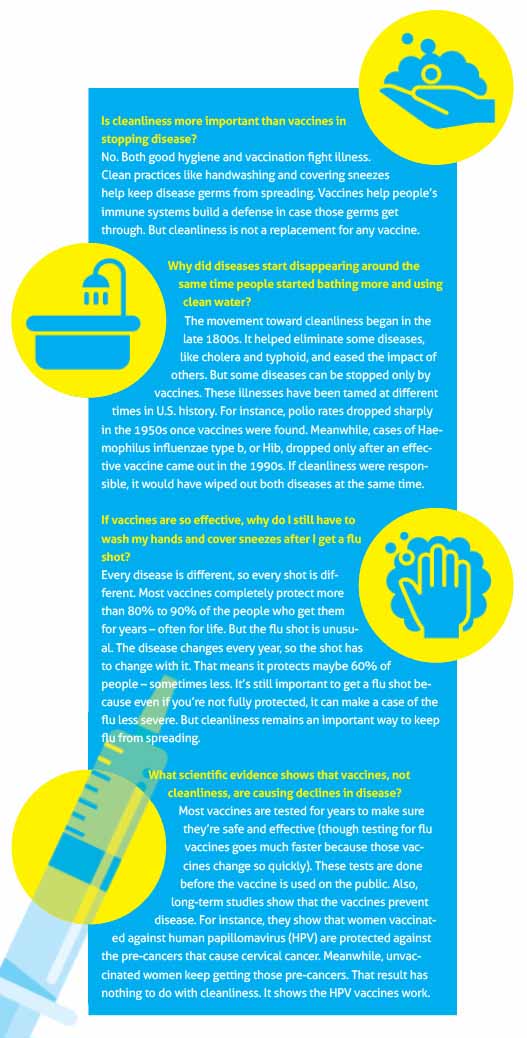Historical data proves vaccines work. Year-over-year rates for vaccine-preventable diseases like measles and whooping cough show that the number of cases drops sharply and remains low after a vaccine is introduced.
Anti-vaccine activists have a theory to explain away this data. They say the rise of cleanliness and hygiene in the late 1800s – not vaccines – was the real force in stopping these diseases.
“Out of all the anti-vaxx arguments, it’s the easiest to prove that it’s simply not true,” said Vincent Fonseca, MD, a public health and general preventive medicine specialist in San Antonio.
Physicians understand that pitting cleanliness against vaccines is a false choice. You can help your patients understand that both are important tactics for stopping the spread of diseases. It’s true that water treatment, food safety, handwashing, and other public health measures helped prevent many deadly diseases like cholera and tuberculosis, according to the U.S. Centers for Disease Control and Prevention. But it’s also true that some diseases like polio could be wiped out only with vaccines, which build the immune system’s defense against disease.
You also can help your patients understand that scientific evidence shows vaccines are behind the significant declines in disease. All vaccines must go through studies to prove their safety and effectiveness before they are licensed by the Food and Drug Administration, Dr. Fonseca says. That research compares disease rates in vaccinated and unvaccinated people. It uniformly shows that people who are vaccinated are more protected against illness than those who are unvaccinated.
“If hygiene were the main reason that vaccine-preventable diseases were prevented, there would be no difference between the two groups,” he said.

Tex Med. 2020;116(4):47
April 2020 Texas Medicine Contents
Texas Medicine Main Page
Last Updated On
March 31, 2020
Originally Published On
March 30, 2020